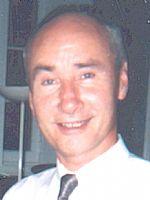Christophe de Voogd, born in Paris, France, in 1958. Ancien élève de l’École Normale Supérieure. Former Director of the French Institutes in The Hague and Amsterdam (Maison Descartes). Assistant Professor of History at the Institut d’Édudes Politiques, Paris.
Guest of the Rector (13 April 2004 – 30 June 2004)
My stay at NIAS from mid-April to the end of June 2004 allowed me to write three different things:
A survey of the Bourgundian times in the Netherlands for the French historical journal Clio. The invaluable advice of Wim Blockmans, a major expert on this period, was decisive for the pertinence of the end product.
A contribution to a round-table on the Dutch and French identities in Europe held on the 3 June at the Institut Néerlandais in Paris (with among others Emmanuel Todd en Bas Heijne). Various discussions with NIAS Fellows on the topic (among others with W. Mijnhardt) and the very useful attendance to the Ortelius Lecture by Piotr Sztompka on Eastern Europe and the European identity have been of great help to me for this project.
An article on a particular aspect of Dutch nation building. My current field of interest is the history of Dutch nation building, and in particular the role Dutch historians (with a special focus on Johan Huizinga) have played in the construction of a Dutch national epos. In this article I focused mainly on the Magna Carta of French republican nationalism: the famous lecture given at the Parisian Sorbonne by Ernest Renan, Qu’est-ce qu’une nation? (1882). It just so happens that this small but very influential essay contains two central references to the Dutch nation, considered by Renan as a very good example of his theory: having done great things together in the past and wanting to go on doing so in the future. These references led me to inquire further in to the relations between Renan and the Netherlands. Thanks to discussions with Henk Wesseling and former Fellow and Visitor Ernestine van der Wall, a lot of what I was reading in the literature on the subject was confirmed and even led me to change my initial hypothesis. In other words these discussions did nothing less than make me rethink a large part of my analysis.
